Caring for the Environment
Caring for
the Environment
Fast Retailing (FR) endeavors to create high-quality, long-lasting clothes with timeless appeal.
We aim to contribute to the establishment of a circular economy
and maximize resource efficiency by eliminating waste.
In our response to climate change, we will accelerate cooperation with
our business partners and other stakeholders.

-
0102
01
02Responsible Procurement of Raw Materials
FR has joined the Better Cotton Initiative, a global not-for-profit organization, which provides cotton farmers with education about the use of water and agricultural chemicals. For rayon products, FR also makes efforts to establish the traceability to viscose mills.
Chemical Management
We are promoting initiatives for zero discharge of hazardous chemicals in the production process by joining the fashion industry’s association focusing on this issue, the ZDHC Group. We endeavor to be in compliance with the water discharge standard at the core fabric mills.
Reduction of Water Use in Jeans Finishing
We have developed technology to reduce the amount of water used in the jeans finishing process by up to 99%*, with the equivalent of just about a teacup of water for every pair of jeans. By promoting this technology across all the FR Group brands, FR continues its efforts to save this precious natural resource.
* Comparison between UNIQLO Men’s Regular-Fit Jeans in 2017 and the same model in 2018.
* Comparison between UNIQLO Men’s Regular-Fit Jeans in 2017 and the same model in 2018.
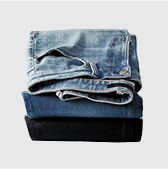
Use of Recycled Polyester
Recycled polyester made from post-consumer PET bottles is partly used in UNIQLO’s DRY-EX Polo Shirts and Fluffy Yarn Fleece, products that promote efficient resource use.
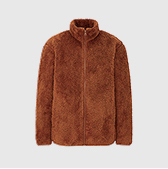
Reduction of Water and Energy Use
We are promoting initiatives to reduce water and energy use by conducting environmental impact assessments of UNIQLO’s core fabric mills.
Initiatives on the Issue of Microplastics
We participate in cross-industry initiatives to solve the problem of marine plastic pollution, including the Microfibre Consortium.
-
03
03
Introducing LED Lighting and Installing Solar Panels at Stores
UNIQLO Japan achieved a 93.8% installation rate of LED lights for store lighting, which led to a 38.7% reduction of greenhouse gas emissions in FY 2020 (as compared to FY 2013, per unit area). UNIQLO Taiwan completed installation of solar panels for three locations including its big Tainan Wenxian Road store, and will continue to introduce them in the future.
Respecting the Environment Through Our Stores and Offices
We strive to promote energy-saving lighting and air conditioning, taking full advantage of natural light in the design of our stores and offices around the globe. In our European locations, we support and respect local cultural heritage while reducing our environmental impact by optimizing historical buildings to make them as eco-friendly as possible.
Improving Logistics Efficiency
We have significantly reduced the use of new corrugated cardboard for shipping products by using collapsible containers, and also improved loading efficiency by using fewer types of corrugated boxes. We aim to improve transport efficiency by consolidating containers and trucks for transport and shipping.
-
04
04
Reduction of Single-Use Plastic
We endeavor to reduce our environmental impact by reducing the use of plastic product packaging and shopping bags, shifting to environmentally friendly materials. We also promote the use of eco-friendly reusable bags to our customers.
RE.UNIQLO
Our initiative to collect UNIQLO clothes our customers no longer wear and give them new value continues to evolve. The insulating filling of our newly launched Recycled Down Jackets is entirely made from down and feathers that were extracted from the items collected from our customers. This represents our first product-to-product recycling project.
Signing of the Fashion Industry Charter for Climate Action
FR signed the Fashion Industry Charter for Climate Action in January 2020.
The Charter supports the goals of the Paris Agreement
in “limiting global temperature rise to well below two degrees Celsius above pre-industrial levels.”
It also calls for a commitment to “30% aggregate GHG emission reductions in scope
1, 2 and 3 of the Greenhouse Gas Protocol Corporate accounting
and Reporting Standard, by 2030 against a baseline of no earlier than 2015.”
-
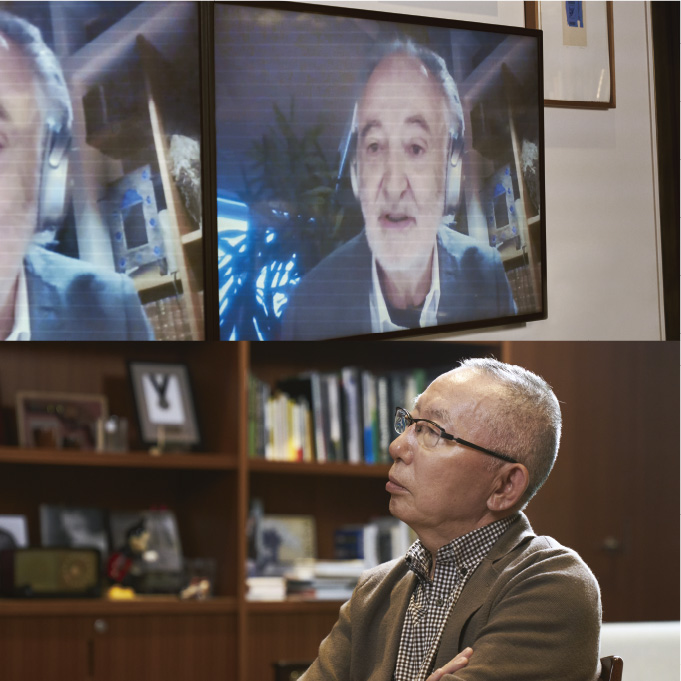
-
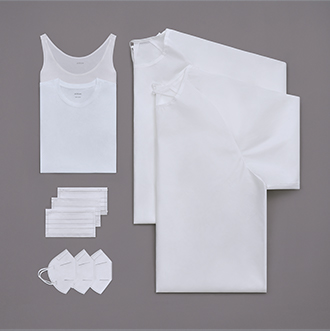
Combating COVID-19
-
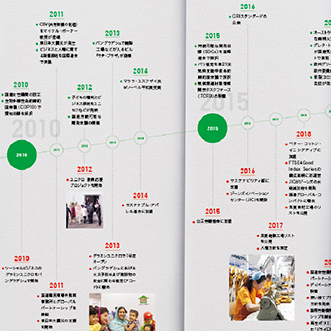
20 Years of Sustainability Progress
-

Gen Z : Changing the World
-
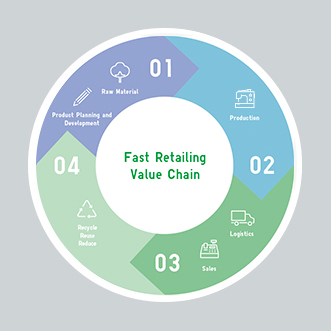
Caring for the Environment
-
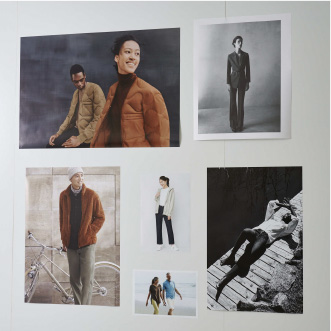
Product Innovations
-

Helping Refugees Flourish
-
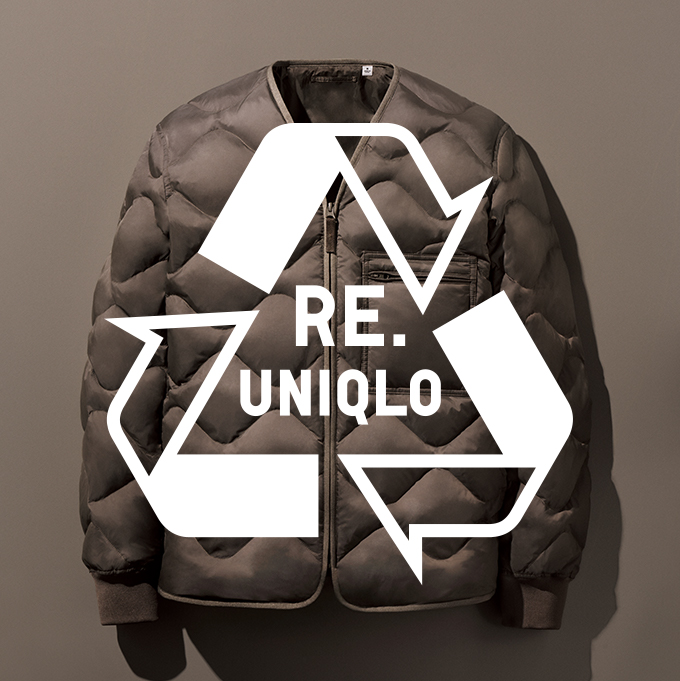
RE.UNIQLO:Rebirth of Clothes
-
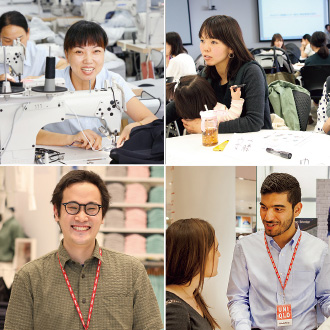
Putting People First
-
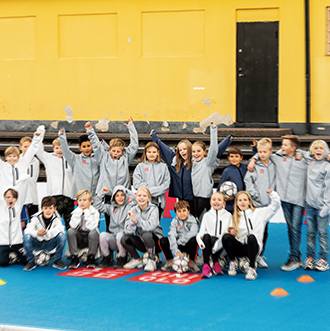
Sport Meets Young Dreams
-
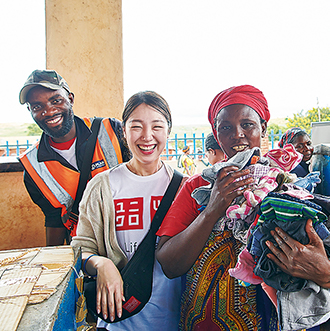
Giving Back to the World
-
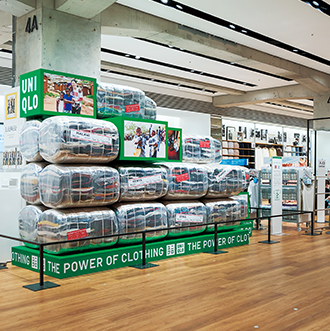
Unlocking the Power
of Clothing -

Corporate Governance
-
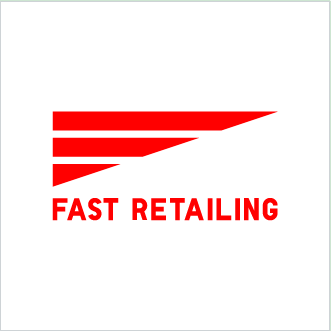
FAST RETAILING WAY


